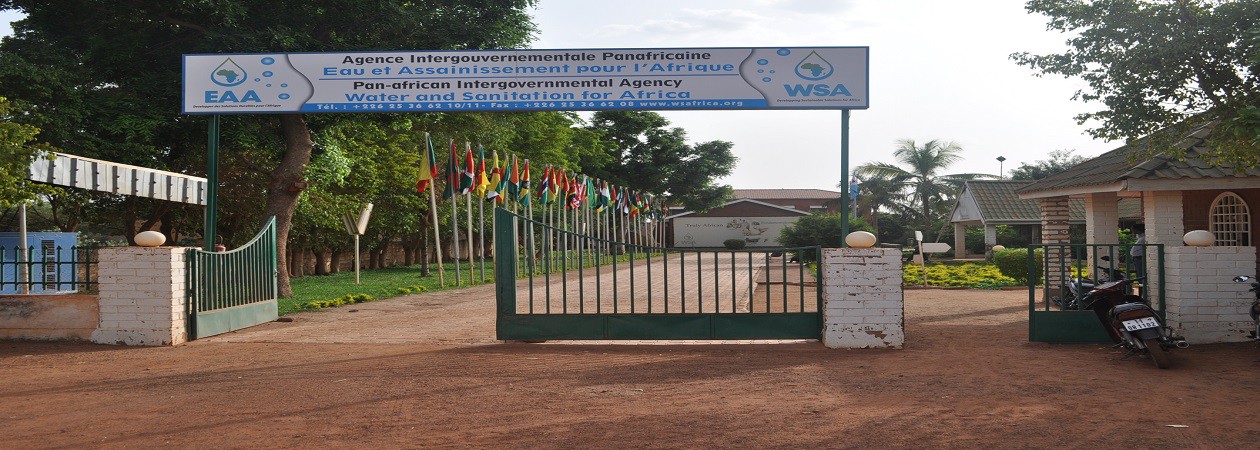Access to family sanitation remains very low in Africa. It is even more so in particularly vulnerable households thus inflating the not-so-exemplary statistics on human health and development. With the view to improve people living conditions WSA has been deploying efforts in countries. In Côte d'Ivoire for example, WSA is engaged in the promotion and popularization of integrated and sustainable sanitation for the benefit of disadvantaged households.
The ISSVH (Integrated and Sustainable Sanitation for the benefit of Vulnerable Households/Assainissement intégré et durable des ménages vulnérables) Project was launched in january 2013 with the main objective of contributing to the reduction of mortality from waterborne diseases and protect the environment by ensuring access of the poor to basic sanitation. Areas of intervention are 03 disadvantaged communes (Kuwait - Yopougon and Sagbé, Kennedy-Clouetcha - Abobo commune) of the Abidjan district
Activities carried out are in line with MDGs and should result in:
- Reducing child mortality (MDG 4) by decreasing the risk of waterborne diseases transmission in these neighborhoods and the risk of contracting malaria (MDG 6C) by removing stagnant water;
- Providing 13 500 direct beneficiaries living in the target communes and 1500 students with sustainable access to improved sanitation, while improving the living conditions of 150,000 people living in these three communes;
- Preserving environmental resources (MDG 7A) through the recovery of excreta in agriculture and the training of 200 market-gardeners in the use of these bio fertilizers.
 Activities to be carried out in order to achieve these specific objectives require WSA expertise. These activities are: the construction of double pit EcoSan latrines; the construction of a Small-diameter Sewage Network (REFaiD) including collection, disposal and treatment of domestic wastewater; the development of self-financing structures for the management of a value-chain operating in the collection, transportation, storage, treatment and reuse of wastewater by-products; as well as raising awareness on the benefits of EcoSan and community mobilization through the HCES (Household-Centered Environmental Sanitation) approach
Activities to be carried out in order to achieve these specific objectives require WSA expertise. These activities are: the construction of double pit EcoSan latrines; the construction of a Small-diameter Sewage Network (REFaiD) including collection, disposal and treatment of domestic wastewater; the development of self-financing structures for the management of a value-chain operating in the collection, transportation, storage, treatment and reuse of wastewater by-products; as well as raising awareness on the benefits of EcoSan and community mobilization through the HCES (Household-Centered Environmental Sanitation) approach
Mid-term results bear witness to the success of effectively conducted activities. To name a few: the construction of 128 EcoSan/UDDLs (Urine Diverting Dry Latrines) in 64 shared-yards; the construction of 130 laundries/emptiers in 130 shared-yards as around 25 others are under construction; the conduct of 06 public awareness campaigns and performance of 06 theaters during the Fifteen Health Days celebration; and the capacity building of members of 03 Health Committees. Not to mention the training, equipment and awareness of 150 market gardeners in the use of bio-fertilizers; as well as the establishment of a management structure for a collection transportation, storage and reuse of sanitation by-products chain.

Among the significant effects/impacts of these results it should be noted that:
- 95% of beneficiary households are satisfied with the use of UDDTs;
- 86% of beneficiary households know and practice at least 03 hygiene rules;
- 76% of beneficiary households with laundries are satisfied of their construction and 84% are satisfied with the use;
- the marketing/sales of sanitation by-products generate income for households.
Scheduled to end in April 2016, the project mainly targets households, school groups, market gardeners and management structures of chains operating in the sanitation by-products in Yopougon and Abobo communes.
Funded by the European Union the project is implemented by ACTED NGO and WSA, with the support of Côte d'Ivoire competent government services.




